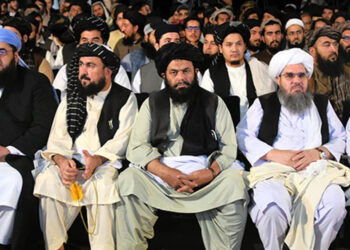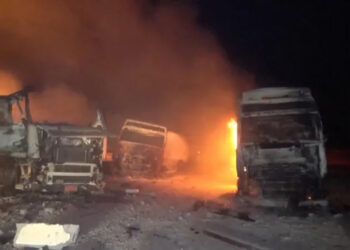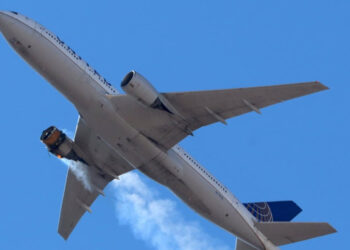For Palestinians in Gaza, Israel’s eyes are never very far away. Surveillance drones buzz constantly from the skies. The highly-secured border is awash with security cameras and soldiers on guard. Intelligence agencies work sources and cyber capabilities to draw out a bevy of information.
But Israel’s eyes appeared to have been closed in the lead-up to an unprecedented onslaught by the militant Hamas group, which broke down Israeli border barriers and sent hundreds of militants into Israel to carry out a brazen attack that has killed hundreds and pushed the region toward conflict.
Israel’s intelligence agencies have gained an aura of invincibility over the decades because of a string of achievements. Israel has foiled plots seeded in the West Bank, allegedly hunted down Hamas operatives in Dubai and has been accused of killing Iranian nuclear scientists in the heart of Iran. Even when their efforts have stumbled, agencies like the Mossad, Shin Bet and military intelligence have maintained their mystique.
But the weekend’s assault, which caught Israel off guard on a major Jewish holiday, plunges that reputation into doubt and raises questions about the country’s readiness in the face of a weaker but determined foe. Over 48 hours later, Hamas militants continued to battle Israeli forces inside Israeli territory, and dozens of Israelis were in Hamas captivity in Gaza.
“This is a major failure,” said Yaakov Amidror, a former national security adviser to Prime Minister Benjamin Netanyahu. “This operation actually proves that the (intelligence) abilities in Gaza were no good.”
Amidror declined to offer an explanation for the failure, saying lessons must be learned when the dust settles.
Rear Adm. Daniel Hagari, the chief military spokesman, acknowledged the army owes the public an explanation. But he said now is not the time. “First, we fight, then we investigate,” he said.
In retrospect, the motives behind Hamas’ astonishingly well-planned land, sea, and air attack on Israel on Saturday were obvious.
Also read: Major airlines suspend flights to Israel amid escalating violence
Since Israel evacuated its military outposts and forcibly expelled 9,000 Israeli settlers from the region in 2005, there have been four wars and frequent outbreaks of violence between Hamas militants in Gaza.
Every time Hamas has fired rockets at Israel or committed other provocations, Israel has responded by heavily bombing the Gaza Strip in retribution. However, Hamas appears to consider this to be part of doing business.
An important factor motivating Hamas towards violence is that it has to watch its flanks. Other smaller, but increasingly extremist groups, are contesting its authority in Gaza, notably Palestinian Islamic Jihad.
On top of this, the Israeli government formed by Prime Minister Benjamin Netanyahu last December is the most right wing in Israeli history. This government has made no secret of its desire to annex the West Bank and has permitted significant expansion of Jewish settlements in the territory, which are illegal under international law.
That has led to conflict between settlers and young West Bank Palestinians, who in the past year have formed a loose grouping known as the “Lions’ Den”.
Added to this, a minister in Netanyahu’s coalition, Itamar Ben-Gvir, has visited the Temple Mount, the site of the Al-Aqsa Mosque, one of the holiest shrines in Islam. This was considered a provocation by all Palestinians – both in the West Bank and Gaza. Further angering Palestinians, Israeli tourists also travelled to the site over the recent Sukkot holiday.
A visit to the Temple Mount by Ariel Sharon in 2000, then the leader of the opposition in Israel’s government, is generally regarded as the spark that ignited the Second Intifada from 2000-2005.
Fear of widespread war
In Hamas-controlled Gaza, Israel pressed on with its most intensive retaliatory strikes ever, which have killed more than 500 people since Saturday. Defence Minister Yoav Gallant announced Israel’s tightened blockade which would keep even food and fuel from reaching the strip, home to 2.3 million people.
The prospect that fighting could spread to other areas has alarmed the region. Israeli troops “killed a number of armed suspects that infiltrated into Israeli territory from Lebanese territory,” the military said, adding helicopters “are currently striking in the area”.
An official with Hezbollah denied that the group had mounted any operation into Israel. Hezbollah, a Shi’ite militant group powerful in southern Lebanon, is backed by Iran like Hamas.
Artillery shelling and gunfire were heard at Lebanon’s southern border with Israel, a correspondent for Hezbollah’s Al-Manar TV said in a post on social media. Israel’s Army Radio gave the location as being near Adamit, across from the Lebanese border towns of Aalma El Chaeb and Zahajra.

















![Muslim pilgrims gather at the top of the rocky hill known as the Mountain of Mercy, on the Plain of Arafat, during the annual Hajj pilgrimage, near the holy city of Mecca, Saudi Arabia. [Rafiq Maqbool/AP Photo]](https://mmnews.tv/wp-content/uploads/2025/04/Mount-Arafat-350x250.jpg)

















